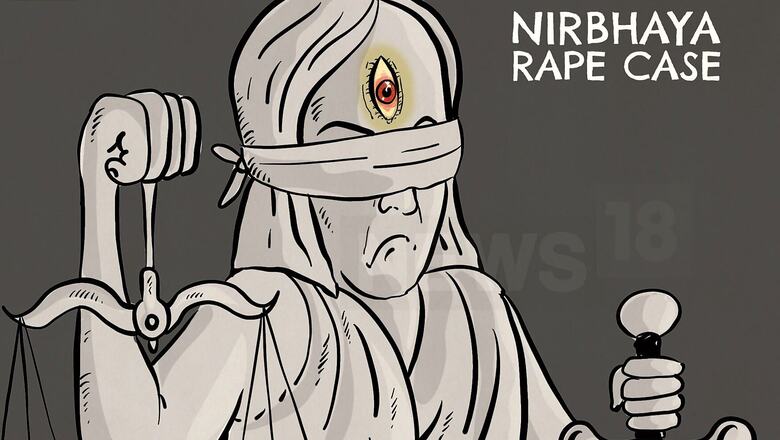
views
On January 22, four convicts in the Nirbhaya rape-murder case, which occurred seven years ago and rattled the conscience of the nation, will be hanged. The barbaric crime unified the nation in the call for instant hanging of the perpetrators and also resulted in laws being made more stringent. The hanging is supposed to bring the case to a closure and also give a fillip to various other brutal cases of rape pending in courts while setting a precedent for judges to send convicts to death rather than mere life imprisonment in such instances.
Does hanging bring a closure (legal and emotional) to any case? Can statist revenge on behalf of society be seen as a moral act? Does it drive the fear of the devil into potential rapists (very basis of this law) or other criminals? The answer to all this is a big ‘no’.
On the face of it, no one believes that hanging is a ‘cure-all-evil’ remedy. In India, only in the ‘rarest of rare’ cases can convicts be hanged. But now it has become routine for prosecutors to demand death for every killing or rape. The prosecutors who represent the state are giving vent to the widely held notion that criminals have no place in a moral and ethical society and thus must be exterminated. This national cry for hanging is the offshoot of a rising police or surveillance state, so typical of India, where everything that the police says or does is seen as just and final.
Various questions arise. Is the role of the state/judiciary only to bow to opinion of a section of society which will always nurture primordial notions of revenge and closure: like in the days of the Roman coliseum where people were ripped apart by lions to assuage the bloodlust of the population or the king? If every killing is a crime, why is statist execution condoned and seen as rightful? Many religions believe that revenge belongs to God.
When a crime happens in society, the government is to blame as well. Any crime is a culmination of how the society shapes itself as it grows. Any government is supposed to moderate or channelise this change in society. In India, governments have totally failed in this. The poor are left to rot, financially and morally. The same state, having relinquished its primary duty, finally emerges as the punisher and the provider of solutions, the cleanser of society, who exterminates the criminal when it was the government’s duty, in the first place, to lift them up before they fell. Jails can also be reform centres where a transformative process occurs.
By sending a man to his death the state is assuming the role of the ultimate truth, the provider of justice based on social contract theories. Various philosophers and theorists, from Rousseau onwards, have argued about this. Various interpretations of religious philosophies also play a part. But all religions and faith itself are flawed. As writer Karen Armstrong argues in her book ‘A History of God’, Judaism, Islam and Christianity proclaim the goodness of God, but organised religion itself has been the catalyst of violence and ineradicable prejudice. The state and law too are guilty of this prejudice. This appropriation of God-like powers is where the basic flaw lies and that is why hanging to death itself is flawed on many grounds. We the citizenry are forced to believe in the ultimate goodness of the state. Today we applaud a hanging, not knowing that we might all one day be dragged to death for right or wrong reasons, for war or crime, in the name of nationality, law or one man’s beliefs.
In a letter to the New York Times in November 2007, Professor Allan Hutchinson wrote, “The fact is that the death penalty, like limb-chopping or stoning, is a morally outrageous practice whatever its deterrent effect: it reduces society to the ethical level of the murderer. In a society that aspires to be moral and just, there is no room for such a state-sanctioned uncivilized practice.”
Any hanging leaves an indelible mark on a nation’s conscience. It refuses to fade from memory or folklore. First the hanging is applauded. The villains then slowly become victims and after a few decades reemerge to haunt us as heroes or villains of a different struggle. Who has forgotten Billa and Ranga? This is not to suggest that the Nirbhaya convicts are innocent or heroic. But how can a flawed state or an immensely flawed police hang them? Hanging has no place in the statute books of any modern state.
(The author is a senior journalist. Views expressed are personal.)




















Comments
0 comment